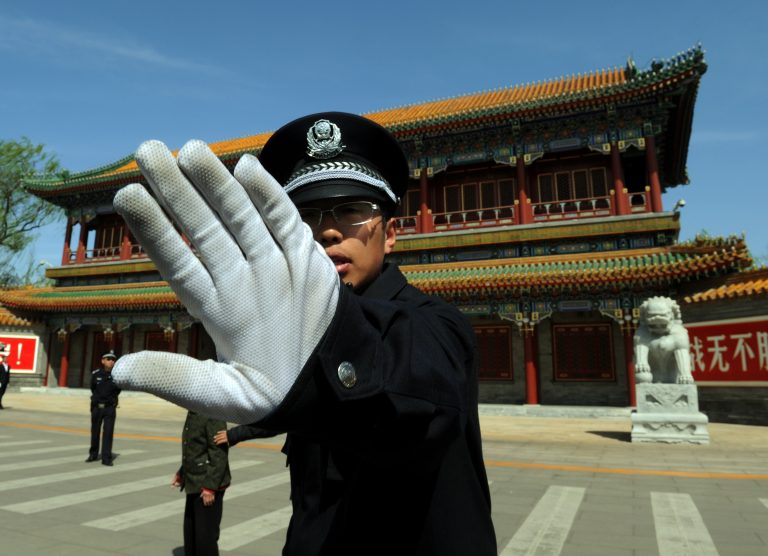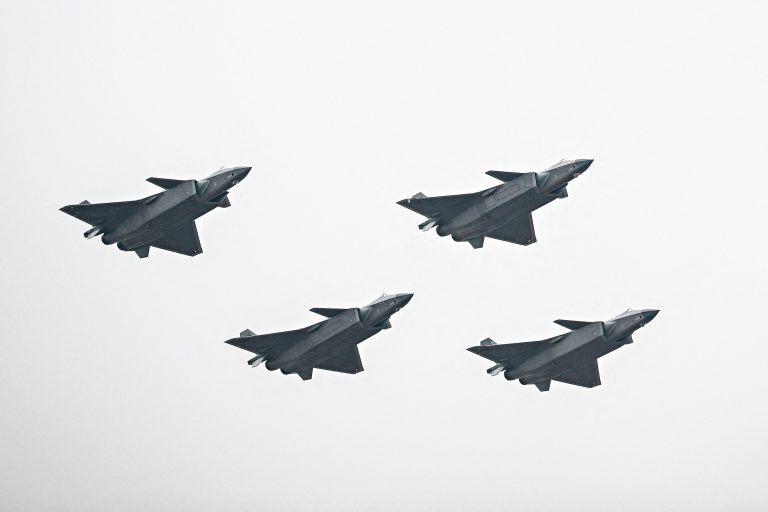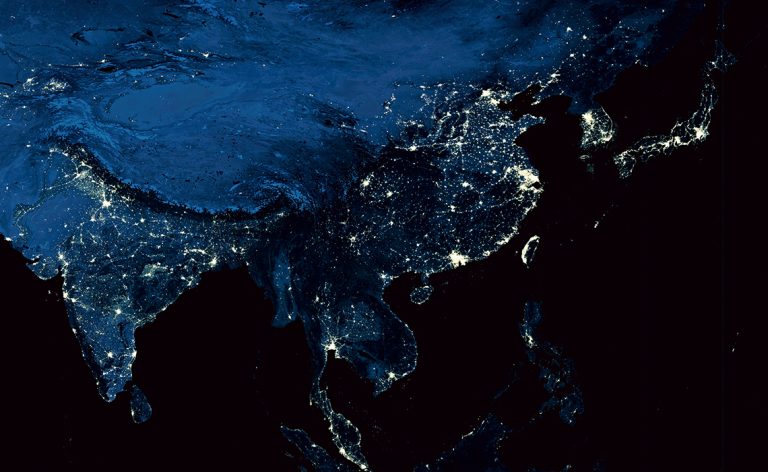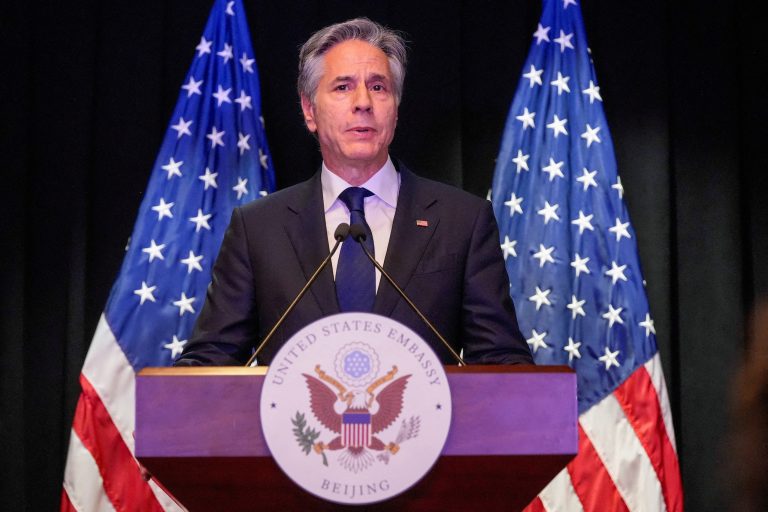News analysis
In early February, a leaked audio recording featuring former Harvard–Yenching Institute scholar Huang Wansheng’s candid take on a range of sensitive topics at a private gathering in January started circulating on the internet.
Huang, 72, disclosed that he was rushed back to China from the United States in July 2020, when the pandemic was spreading quickly around the globe and many countries were in lockdown. He said that people in the highest levels of the Chinese Communist Party paid 170,000 yuan (about $26,815) for his one-way ticket, and that he encountered delays and pains in getting his wife over from America some time later.
At one point in the recording, Huang indicated that he reports to People’s Republic of China (PRC) vice premier Liu He, and is part of a Ministry of Science and Technology epidemic prevention project that is “personally led by Xi Jinping.”
‘Massive interest groups’ profiting from Zero-COVID policies
Huang was blunt in his assessment of the PRC’s pandemic control measures. “The Chinese people are afraid of death, Chinese officials are afraid of losing their jobs, and Chinese experts are afraid of taking responsibility. Those three things have brought China’s epidemic situation to this current state,” he said.
Success
You are now signed up for our newsletter
Success
Check your email to complete sign up
READ MORE:
- Premier Li Keqiang Asks Officials to Avoid Communist-style ‘Bureaucratism’ as China’s Economic Crisis Worsens
- In 2022, Expect China’s Economy to Worsen Further
Huang then blasted “massive interest groups” in government and the pharmaceutical business for seizing the opportunity of the pandemic to take in billions. He noted that local governments have been ordering compulsory mass testing in their respective areas after only “one or two” positive cases, which allowed the “[expletive] interest groups” to make 670 billion yuan doing nucleic acid testing. Huang added that 670 billion yuan represents just 1 percent of the 67 trillion yuan in revenue generated by China’s anti-epidemic economy, citing research by Peking University’s health economics professor Li Ling.
Huang also remarked that interest groups are behind mass vaccinations and booster shots. An unidentified person at the gathering exclaimed, “this is a huge problem; the health issue has become a political issue.”
Huang recommended that the authorities take the chance to overhaul China’s primary care system. He added that the PRC medical system is far too reliant on foreign countries, noting that core medical equipment is “basically imported from abroad,” including 88 percent of reagents used in testing.
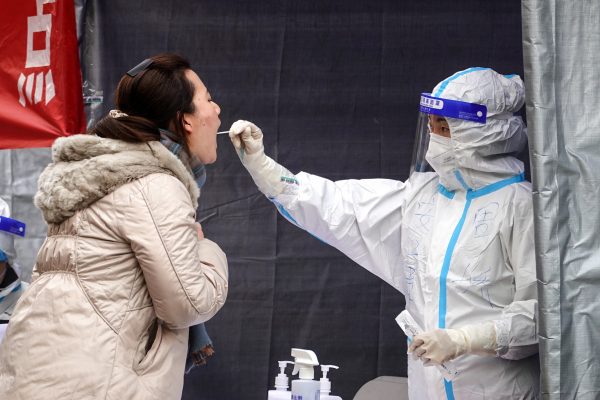
China’s illusory ‘cutting-edge’ technologies
Huang Wansheng gave the private gathering a rundown of IT and genetic engineering developments in America. He went over the scientific and technological advances in the U.S. and elsewhere, before noting that China is trailing those countries by a fair bit. “All core technologies are in the United States,” Huang said, before observing that the Chinese have been “using other people’s algorithms to write programs” without making contributions to developing basic internet algorithms.
Huang also observed that while Huawei’s 5G technology is not up to standard despite its claims, and “that is why [the U.S.] recommended to the EU not to use Huawei stuff.” However, the PRC “completely turned [Huawei’s inadequacies] into a political issue, a bottleneck issue,” he said.
A person at the gathering said that Xi Jinping has a “world boss complex,” and that those around him have taken advantage of Xi’s desire for global domination to sell him the idea that “China’s 5G is number one.”
Huang then dismissed the CCP’s propaganda terms touting the excellence of PRC technology: “Cutting-edge technologies, disruptive technologies, that’s all fluff.”
He added that Wang Huning, the Politburo Standing Committee member overseeing propaganda, “does not understand natural sciences in the slightest.”
Huang said that he had reported to Liu He trends in American IT and genetic engineering developments while implying that Xi might not comprehend the implications of those developments. However, he noted that Xi’s advisers will “create a commotion” in attempting to get the Chinese leader’s attention on those issues.
Who leaked the recording?
What is revealed in the leaked audio recording suggests that Liu He brought him in to serve the Xi leadership in an advisory or consulting role.
Huang’s residence in the United States and familiarity with issues of national significance and strategic importance to the CCP would provide the top leadership with crucial perspectives and information that they might otherwise lack.
Huang’s elite connections, the topics discussed at the private gathering, and unreserved manner in which he approached the topics suggest that the people with him either belong to or move in the Party’s elite circles. Also, fragments of family history revealed in the recording by two of the attendees at the gathering suggest that some of those present are from military families.
READ MORE
- As Challenges Mount, China’s Xi Calls for ‘Self-Revolution’
- Does the CCP’s New ‘Historical Resolution’ Give Xi More Power? Not Really.
There are several possible explanations for why the recording was leaked, ranging from simple carelessness on the part of those who made the recording to a risky gamble by allies of Xi Jinping to get important messages out to their boss that might have otherwise escaped his attention via the usual delivery channels.
Considering escalating factional struggle in the CCP elite, it also cannot be ruled out that the leaked recording is part of a Xi camp scheme to expose and later move against political rivals and wayward officials (“massive interest groups”) who might be profiting off the pandemic at Beijing’s expense.
Regardless, the circulation of the leaked audio has troubled Huang Wansheng. On Feb. 10, Beijing-based dissent journalist Gao Yu tweeted a WeChat group conversation noting that Huang was “very angry” about the recording, has no idea how it got out, and is “prepared for jail time.” Gao added that Huang was likely showing unhappiness at the situation with his “jail time” remark, and “it will be difficult to hear Professor Huang’s recordings in the future.”
Huang also showed a streak of wounded idealism when the private conversation touched upon Marxism, communism, and socialism:
“The socialist movement started out by caring about the moral consciousness of the individual. [Now] socialism has nothing to do with the individual,” Huang said.
The academic further observed that the structure of communist regimes results in there being “nothing but class struggle and power consolidation” right at the top.
Larry Ong is a senior analyst with New York-based political risk consultancy SinoInsider. He was part of the SinoInsider team that forecasted the 19th Party Congress and 2018 Two Sessions personnel reshuffles with a high degree of accuracy.



